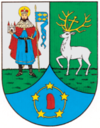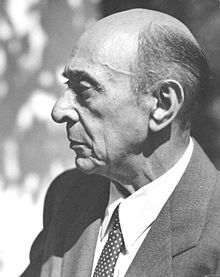
I spent yesterday morning in a research haze. It often happens when I work on posts about my family. I start with one bit of information that needs clarification and follow it as my interests take me until I realize I’ve gone far from my original search and that I’d better get back to work, either on the blog post or on the writing that pays the bills.
Usually I just close all the links and think, “Well, that was fun.” And leave it at that.
Yesterday morning, however, I had one of those “Dumkopf!” moments (they used to be “Duh!” moments but now I castigate myself in two languages). I realized that the data I was about to dismiss helped establish a context for my family’s story. Instead of closing all the tabs, I decided to document my discoveries instead.
The Kornmehls, of course

The journey started with a cryptic reference in an article about a 1932 antisemitic incident at Vienna University. (The article was cited in a guest post by Jill Leibman Kornmehl, and refers to Viktor Kornmehl, one of two Viennese Kornmehls who were doctors. Jill will now understand why it takes so long to get the pieces she sends me posted on my blog.)
Several Nazis were arrested. A Jewish student delegation, including Doctors Kornmehl and Alexander Teich were received by the University authorities this afternoon to whom they submitted their complaints against the terrorization which has been going on at the University in the last fortnight been heard in the United States with the Metropolitan Opera Company, was the target of a hostile demonstration by Nazis in Graz during and following a concert.
I didn’t understand the line about the Metropolitan Opera Company and Graz. So I googled “Metropolitan Opera,” “antisemitism,” “Graz” and “1932.”
Moses, Herzl and Triskaidekaphobia
What came up first was a Wikipedia entry about an unfinished opera by Arnold Schoenberg titled Moses und Aron. This passage in particular intrigued me:
Moses und Aron has its roots in Schoenberg’s earlier agitprop play, Der biblische Weg (The Biblical Way, 1926–27), a response in dramatic form to the growing anti-Jewish movements in the German-speaking world…and a deeply personal expression of his own “Jewish identity” crisis. The latter began with a face-to-face encounter with anti-Semitic agitation at Mattsee, near Salzburg, during the summer of 1921, when he was forced to leave the resort because he was a Jew, although he had converted to Protestantism in 1898. It was a traumatic experience to which Schoenberg would frequently refer, and of which a first mention appears in a letter addressed to Kandinsky (April 1923): “I have at last learnt the lesson that has been forced upon me this year, and I shall never forget it. It is that I am not a German, not a European, indeed perhaps scarcely even a human being (at least, the Europeans prefer the worst of their race to me), but that I am a Jew.”
I was struck not only by this proof of early antisemitism in Austria but also by the fact that in Der biblische Weg, the play on which the opera is based, the “central protagonist Max Aruns (Moses-Aaron) is partially modeled on Theodor Herzl, the founder of modern political Zionism.” I’ll get back to the significance of that in a minute.
One other thing I found fascinating, even though it has nothing to do with anything:
(Note: Schoenberg’s title may have omitted an “A” in Aaron’s name because the composer was severely superstitious triskaidekaphobe.”Moses und Aaron” would have caused the title to have a total of 13 letters.)
Schoenberg and Leopoldstadt
Next I followed the link in the Wikipedia listing to Arnold Schoenberg and discovered that he “was born [in 1874] into a lower middle-class Jewish family in the Leopoldstadt district (in earlier times a Jewish ghetto) of Vienna, at Obere Donaustraße 5.”
Hmmm. Leopoldstadt. Guess who else lived there? Sigmund Freud and, for a brief time, Theodor Herzl, who had an address on Berggasse, where Freud lived and my great uncle had his butcher shop. As far as I know, all the members of the Kornmehl family lived in this district — including the doctors Jill wrote about in the guest post that started it all.
There’s far more about Leopoldstadt that I could go on about, including the irony of the fact that it is named after an emperor who expelled the Jews (that’s his family crest at the top of the post). And I was interested to learn that Schoenberg formally returned to Judaism in 1933.
But although I have to backtrack a bit on my vow to curtail my meandering — at least without documenting it, and at least where it serves the greater goal of establishing my family’s background — the promise to make my posts shorter is a good one.
I still have no clue about the Metropolitan Opera Company, the Nazis, and Graz. All theories are welcome.

Love your meanderings, Edie. This is how the great connections finally get made.
I have to say, I had the opportunity to sing Schoenberg’s Friede auf Erden a couple of times in my singing career (once as a second alto and the other time as a second soprano) and it was one of the most beautiful and in some ways difficult pieces I ever sang. I loved hearing more about the composer in your piece.
Keep up the good work.
How nice to see you here, Rachel — and to learn about a whole other side of you. I had no idea you had a singing career in addition to your writing career, and that you even sang Schoenberg.
Thanks for the nice words and encouragement.
My family also lived in Leopoldstadt. After the Anschluss the gestapo headquarters were strategically positioned there. My son recently visited what had been my father’s apartment and told me that he learned from residents that the Viennese police station there still uses the old gestapo headquarters right across the street from the house. The thrift of the Viennese!
Interesting. Thrift is one way to put it… insensitivity might be another! I’m beginning to wonder if Jews lived anywhere outside of Leopoldstadt. I’m not finding any addresses outside of the 2nd district.
I contacted a musicologist that I know to take a look at the discussion on Schoenberg. The case of Schoenberg is very complicated. Incidentally not only Schoenberg was phobic about the number thirteen and particularly twenty-three, but also his two students Alban Berg and Anton Webern were as well.
Fascinating! I wonder if Schoenberg would have associated with me, as my birthday is on Oct. 23. And how strange to pass those phobias along to his students.
Now castigating yourself in two languages! How funny.
Your writing seems to have transcended to another level somehow as you do this work – your ancestors must be pleased and perhaps are helping.
Who now is living in these houses in this neighborhood you talk about in Vienna? Maybe it’s been covered often enough in limited circles, but people need reminding –
With the uptick in coverage on Israeli settlements. (which while I personally find it hard to understand the Israeli West Bank settlers, the coverage of them also is getting disturbing – a new New Yorker Jan 21 piece by Remnick on right wing Israeli settlement voices growing louder was disheartening in lacking depth) not that two wrongs make a right either, but history provides perspective.
I’m not sure if my ancestors are pleased, Diane — they were, after all, butchers, though the cafe owner may have approved — but *I* am by your nice words. Blogging can be very gratifying — I rarely get responses on my other writing except, if I’m lucky, prompt payment. The strokes I get here (also on my dog blog) make me think I haven’t made a mistake in my chosen career…
As for Israel and settlements and public reaction thereto… oy. That’s all I have to say on that topic (for now).
Indeed – to all of the above. Anyways, I suppose there must be a lot written about what has happened to the ownership of houses and buildings taken away from Jews in Vienna – . I’m just not aware of it. Maybe you wrote about it earlier or will in future- in other words, (how) did your family lose the butcher shop?
Oh, right — I skipped over that part of your message. Must be a psychological reason… There is a pdf from the Freud Museum that is posted on the Rudolf Kornmehl section of my Family Album page that discusses reparations — or lack thereof — for the butcher shop-turned-art gallery. I doubt any members of my family were ever compensated for it. There is also a film called “Freud’s Lost Neighbors” that details this question; the filmmaker talks to all the different people who moved into Jewish property. I will probably try to trace my family’s property too, just out of curiosity. The whole question of the seizure of Jewish property is a subject I am both interested in and loath to explore.
Lots of similar stuff when the Bloodshirts confiscated businesses, homes and all possessions of innocent German civilians in what (“courtesy” of Yalta) became Soviet territory. My grandfather (fought in WW1; his son, an officer in the Wehrmacht, refused to carry out an order and was demoted to grunt status) lost his camera/photography shop in Pomerania; his father-in-law and wife (80 and 72 respectively), after slaving for 50 years and saving up for their own social security, lost their business AND their savings to marauding Ophidian Bloodshirts. They committed suicide.
There was a tremendous amount of bloody injustice as a result of WW2, towards all types of groups.
At a certain point these explorations can go too far and become hazardous to our health. Case in point – the subject of my last post.
“Dummkopf” with 2 m’s. 😉